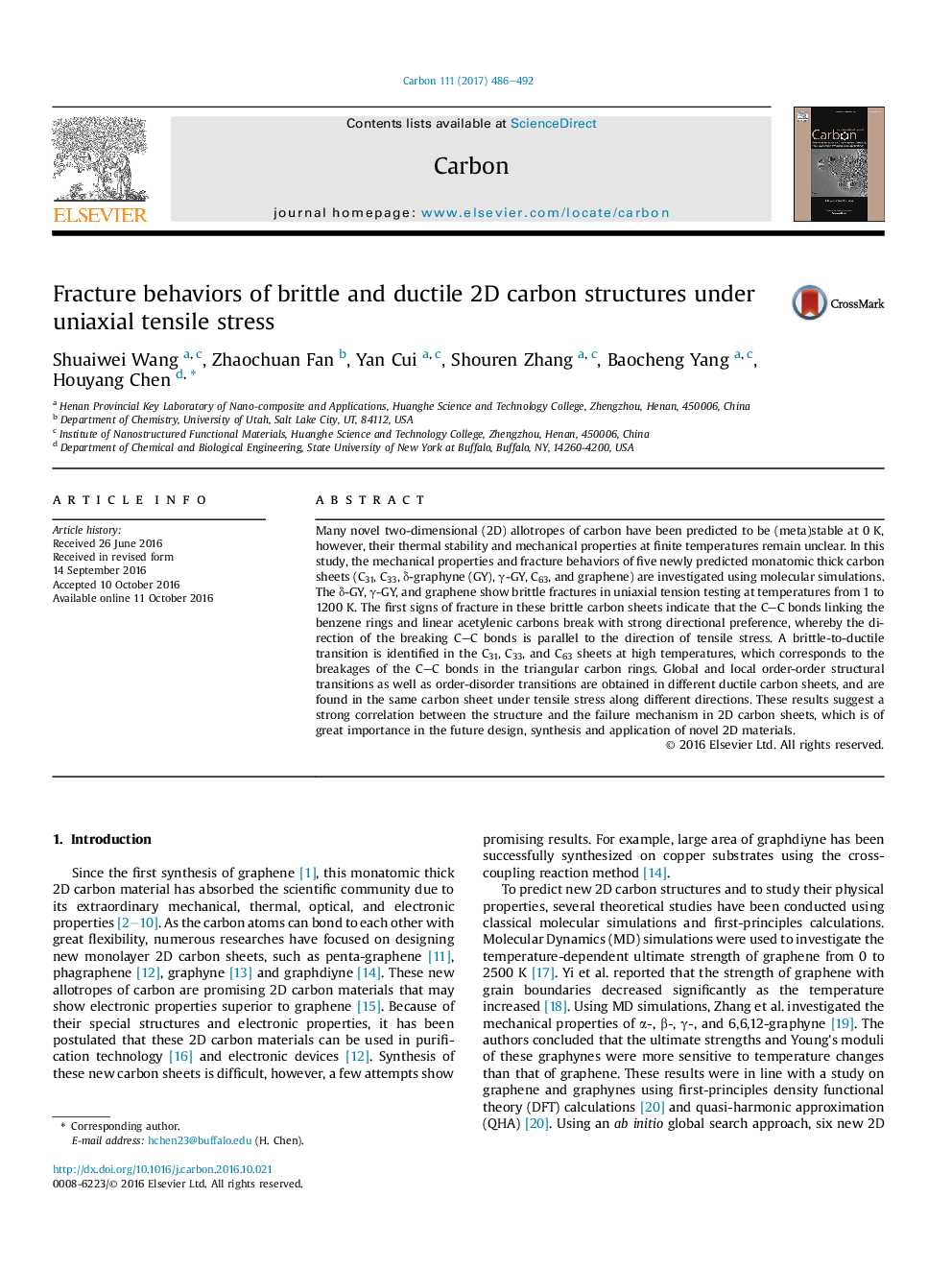| Article ID | Journal | Published Year | Pages | File Type |
|---|---|---|---|---|
| 5432643 | Carbon | 2017 | 7 Pages |
Many novel two-dimensional (2D) allotropes of carbon have been predicted to be (meta)stable at 0 K, however, their thermal stability and mechanical properties at finite temperatures remain unclear. In this study, the mechanical properties and fracture behaviors of five newly predicted monatomic thick carbon sheets (C31, C33, δ-graphyne (GY), γ-GY, C63, and graphene) are investigated using molecular simulations. The δ-GY, γ-GY, and graphene show brittle fractures in uniaxial tension testing at temperatures from 1 to 1200 K. The first signs of fracture in these brittle carbon sheets indicate that the CC bonds linking the benzene rings and linear acetylenic carbons break with strong directional preference, whereby the direction of the breaking CC bonds is parallel to the direction of tensile stress. A brittle-to-ductile transition is identified in the C31, C33, and C63 sheets at high temperatures, which corresponds to the breakages of the CC bonds in the triangular carbon rings. Global and local order-order structural transitions as well as order-disorder transitions are obtained in different ductile carbon sheets, and are found in the same carbon sheet under tensile stress along different directions. These results suggest a strong correlation between the structure and the failure mechanism in 2D carbon sheets, which is of great importance in the future design, synthesis and application of novel 2D materials.
Graphical abstractDownload high-res image (207KB)Download full-size image
